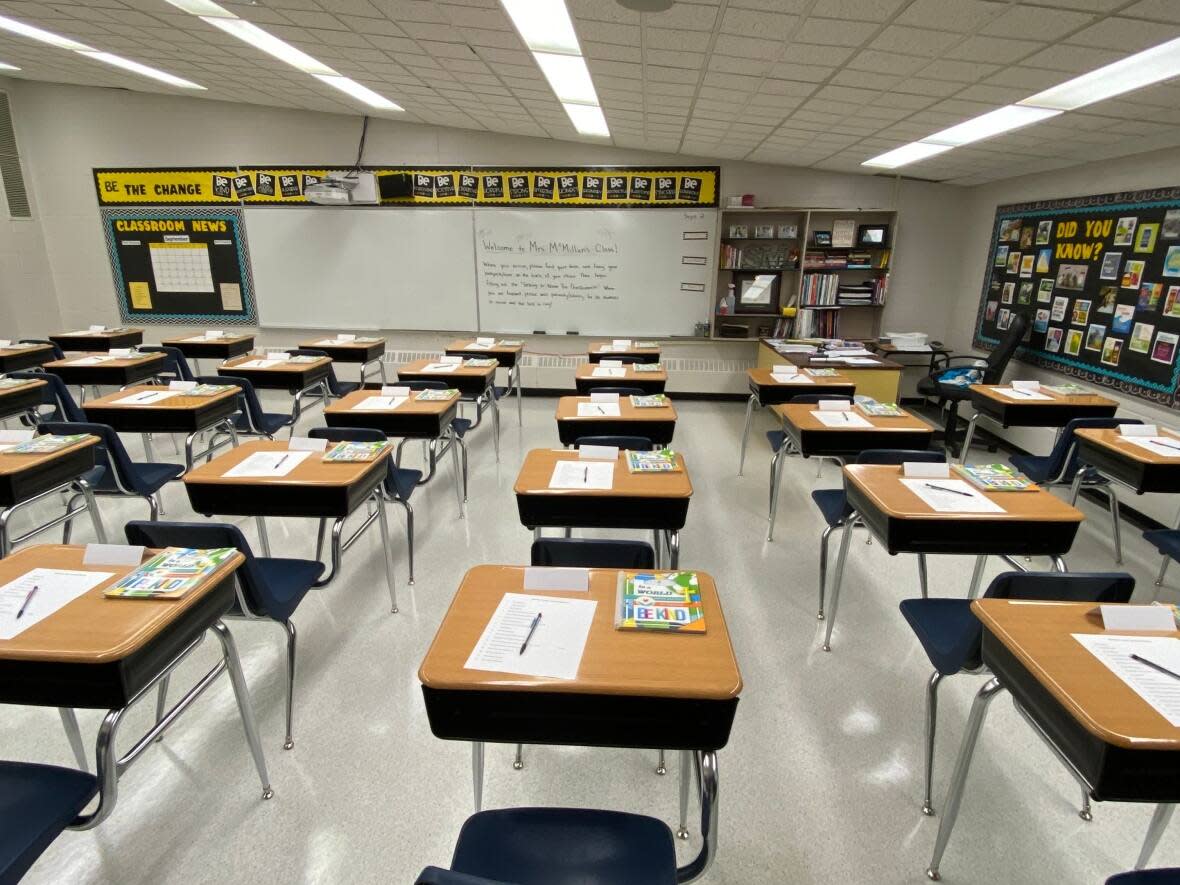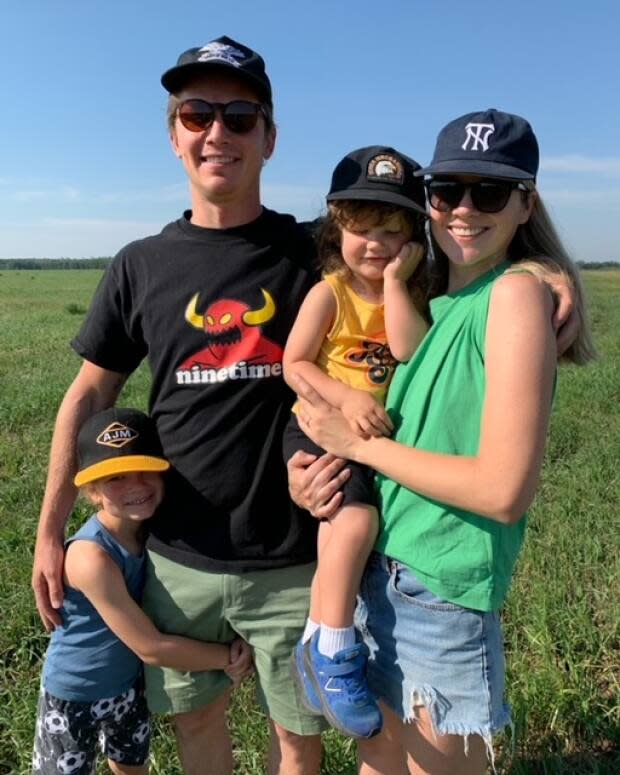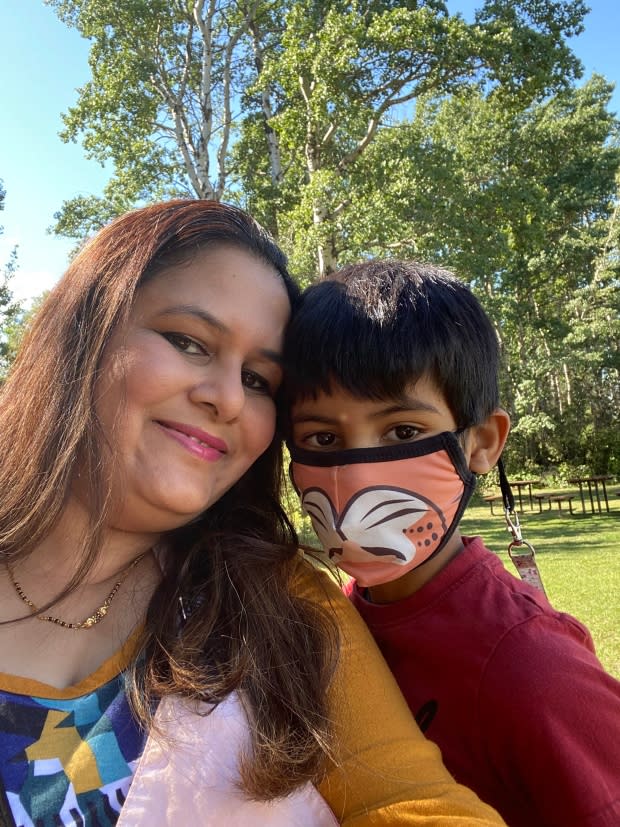More students enrolled in Saskatoon, Regina school divisions than last year

The number of students enrolled in Regina and Saskatoon's public and Catholic school divisions has increased during the pandemic
Some parents say they are sending their children back to school because they believe they are safe spaces for children.
"If the mask mandate hadn't been announced, then I don't think we would have sent my son to school," said Laura Antymniuk, mother of a child in kindergarten.
According to the most recent enrolment data made available to Saskatchewan's Ministry of Education, Saskatoon Public Schools has 25,777 students enrolled in Kindergarten to Grade 12 this year, which was an increase of 497 students from last year.
Greater Saskatoon Catholic Schools has an overall enrolment of 19,571 students which saw an increase of 102 students from 2020.
Regina Public Schools has 24,591 enrolled students, an increase of 300 from last year, while Regina Catholic Schools presently has 11,186 students enrolled, an increase of 37 students.
Antymniuk, who runs a business with her husband in Saskatoon, had to take five months off from work at the start of the pandemic last year as daycare services were closed and her two sons were home.
She said all children deserve the experience of going to school and understands the increase in enrolment numbers as more parents find schools to be relatively safe.
"I actually don't have anyone close to me who has kept their kids home. Everyone in my circle has chosen the same path,"she said.

Antymniuk said she was anxious about her son going to kindergarten, but said the whole process has been about balancing risks.
"Our son was so excited for kindergarten and it's a monumental life event for the whole family, not just for him. Even if we were in a position where we could choose to keep him home, I don't know that we would make that decision," she said.
Kids need schools for overall development
Madhura Suhas Ghaskadvi is a mother of a six-year-old son attending Grade 1 at James L. Alexander school in Saskatoon.
Even when COVID-19 outbreaks were declared at school, she had faith in the school's health protocols, although she did not send her son to school the next day after receiving the notice.
"I was in a confused state of mind, should we send him or should we not? But then I thought that the school is doing their part, and with cases happening everywhere, how long we can keep our kids at home?" she asked.

Online learning was never a preference for Ghaskadvi who was a teacher in India. She said the physical environment of a school is crucial for a child's overall growth and social development.
Ghaskadvi, who moved to Saskatoon almost a year ago, was also worried that her son would miss out on making friends and assimilating in the education system if she kept him in online learning.
"Because our first language is not English, if he doesn't listen to the language, the kid will not grasp it. At home, we speak our mother language, Marathi, so school is the only source right now for him to learn, speak and understand English," she said.
Learning online
However, some parents are still choosing online learning for their children.
Katherine Stevenson, a mother of two, said the vaccine might not work for her seven-year-old son who has primary immune deficiency.
"People with Down Syndrome have dysregulation of their immune system, not just deficiency ... He also has a risk of overreaction to the COVID-19 vaccine," she said.
Because of his health conditions, her son is attending Grade 2 online this year.
The overall enrolment data from the Ministry of Education also includes students who opted for online learning.

Stevenson withdrew her daughter from pre-kindergarten and put her in an outdoor school to ensure that her son, who had complications with other viruses before the pandemic leading up to hospitalizations and ICU stays, is not affected.
Though her son needs educational support with more focus on visual learning, which is not ideal with online classrooms Stevenson said it's her only option. Seeing the COVID-19 outbreaks in schools, she feels content about her decision.
"I think we made the right call. We attempted to provide some stability and predictability for the kids, so we don't have to deal with outbreaks or face the decisions to pull our kids. No matter what's going on in the community [with COVID-19], it's just the same routine here, so I like that," she said.
Stevenson, who is also a part of a group that is trying to start a school for immunocompromised children, said the school will be a good place for kids like her son.

 Yahoo Movies
Yahoo Movies 
